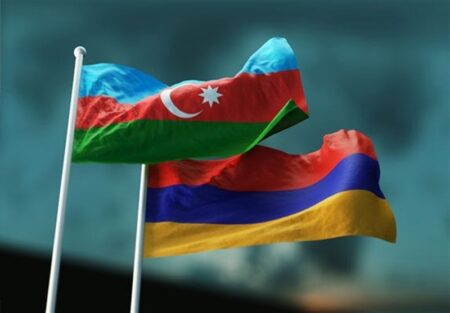Recently, 43 nations issued a statement urging China to guarantee that the Muslim Uighur population in Xinjiang is treated equally under the law.
Previously, in March 2021, several hundred Uighur Muslim girls & women in Turkey marched against Turkey’s extradition deal with China on International Women’s Day.
“We urge on China to allow impartial observers, including the UN High Commissioner for Human Rights and her office, prompt, meaningful, and unrestricted access to Xinjiang,” the nations said in a joint statement read at the United Nations by France.
“We are apprehensive about the situation in the Xinjiang Uyghur Autonomous Region,” according to the statement, which cites “reliable” allegations that “suggest the existence of a huge network of ‘political reeducation camps where over a million individuals have been unlawfully arrested.”
The Declaration, which we signed, European countries, Asian states, and others condemned torture, cruel, inhuman, and degrading treatment, forced sterilization, sexual and gender-based violence, and forced child separation, all of which “vastly disproportionate continue to target Uyghurs and members of other minorities,” according to the Declaration.
Zhang Jun, China’s minister of the United Nations, criticized the “lies” and “scheme to harm China.” He jumped in right away to refute the “unfounded claims.”
“Every day, the people of Xinjiang are emancipating themselves and are happy of the progress accomplished,” he added, backed by Cuba, which condemned any involvement in China’s internal affairs.
The Declaration and its Key Points
The US and other nations signed the Declaration, accusing China of human rights breaches and ethnic cleansing of Uighur Muslims.
Similar statements were made in 2019, and 2020 condemning China’s practices in Xinjiang, where the US has accused Beijing of genocide.
It also demanded that impartial monitors, including the UN High Commissioner for Human Rights, be granted entry to Xinjiang.
Ethnic cleansing has long been a charge leveled against China. It also slammed the proclamation, calling it a ruse to smear China’s image.
China maintains that the camps are ‘educational centers,’ where Uighurs are healed of “extremist beliefs” and radicalization while also obtaining practical skills. They are, however, terrible detention camps in reality.
The Indian government has been deafeningly quiet about the Uighur problem.
Who are Uighur Muslims?
The Uighurs are a Turkic ethnic group with roots in Central and East Asia that are primarily Muslim.
The Uighurs speak a language akin to Turkish and consider themselves culturally and ethnically related to Central Asian countries.
The Uighurs are regarded to be one of China’s 55 officially recognized ethnic minorities.
On the other hand, China only recognizes the community as a regional minority and denies that they are indigenous people.
The Uighur ethnic minority now has the most significant population in China’s Xinjiang province.
Uighurs also dwell in neighboring Central Asian nations such as Uzbekistan, Kyrgyzstan, and Kazakhstan, making up a sizable community.
Xinjiang is China’s most considerable autonomous territory, rich in resources and sharing borders with eight nations, including India, Russia, Pakistan, and Afghanistan.
Persecution of Uighur Muslims
Economic growth has brought a massive number of Han Chinese to Xinjiang in recent decades.
They’ve snatched all the best employment, leaving Uighurs worried about their livelihoods and identities.
This resulted in sporadic violence, culminating in a riot in Urumqi, the region’s capital, in 2009, which killed 200 people, predominantly Han Chinese.
For decades, persecution, forced incarceration, intensive inspection, monitoring, and even enslavement have all been perpetrated against Uighur Muslims.
China asserts that Uighur organizations aspire to form an independent state. Because of the Uighurs’ cultural links to their neighbors, Chinese policymakers are concerned that forces in Pakistan might back separatist movements in Xinjiang.
China must shut its “Vocational Training Centers,” and religious and political detainees must be released from prisons and detention camps.
It should embrace diversity and recognize China’s Uighurs and other Turkic Muslims as regular citizens with Chinese nationals.
All nations should reevaluate their positions and encourage China to stop persecuting Muslims and prohibiting the practice of Islam in Xinjiang immediately.












